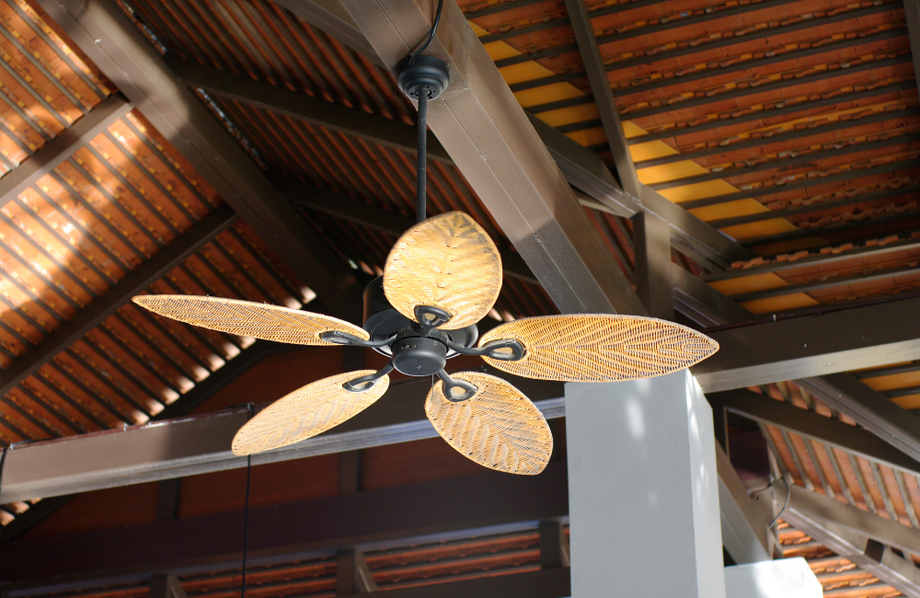When it comes to energy-efficient cooling in Australian homes, ceiling fans are often touted as a practical and economical choice. But how much energy do ceiling fans actually save? In this article, we’ll explore the energy-saving potential of ceiling fans and compare them to other cooling methods.

Understanding Ceiling Fan Efficiency
Ceiling fans operate on a simple principle: they circulate air within a room, creating a breeze that makes the environment feel cooler. Unlike air conditioners, they don’t lower the room temperature but enhance comfort by aiding in the evaporation of sweat on the skin.
Low Power Consumption
One of the main advantages of ceiling fans is their low power consumption. On average, a standard ceiling fan uses about 15-90 watts, depending on speed and size, compared to an air conditioner that can use anywhere from 2000 to 5000 watts. This significant difference in power usage translates to considerable energy savings, especially when used instead of or in conjunction with air conditioning.
Cost-Effective Cooling
Reduced Dependence on Air Conditioning
Using ceiling fans can reduce the need to run air conditioners on cooler days or during times when a slight breeze is sufficient. This reduction in air conditioner use not only saves energy but also extends the life of your AC unit by reducing wear and tear.
Ideal for Mild Australian Climates
In many parts of Australia, the climate is mild enough that ceiling fans can be used for most of the year. In these regions, fans can significantly cut down on the amount of energy used for cooling.
Environmental Impact
Lower Carbon Footprint
By consuming less electricity, ceiling fans contribute to a lower household carbon footprint. This is particularly important in Australia, where environmental conservation is a key concern.
Maximising Energy Savings
Correct Size and Installation
To maximise energy savings, it's essential to choose the right size fan for your space and ensure it's installed correctly. A fan that’s too large or too small for a room won’t be as effective and could lead to unnecessary energy use.
Using Fans Strategically
Using ceiling fans in occupied rooms only and turning them off when leaving a room can further enhance energy savings. Remember, fans are cool people, not rooms.
Conclusion
Ceiling fans are a cost-effective and energy-efficient cooling solution, especially suitable for the Australian climate. By understanding and utilising their benefits correctly, households can enjoy comfort while reducing their energy consumption and environmental impact.

No comments yet